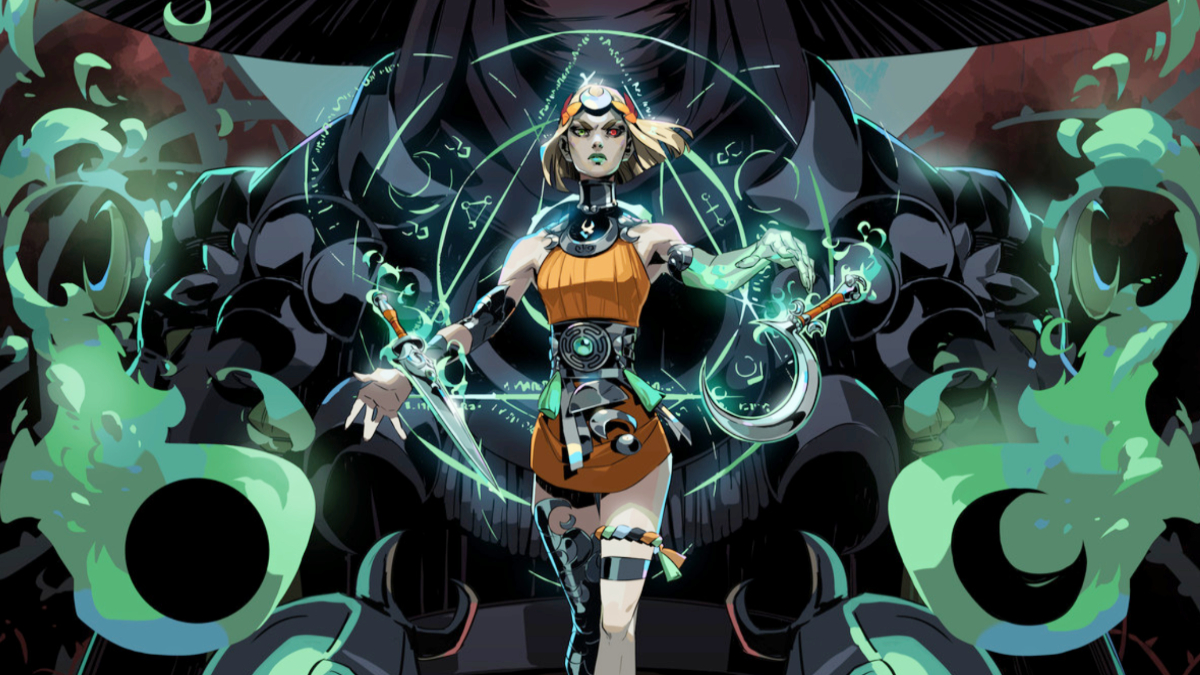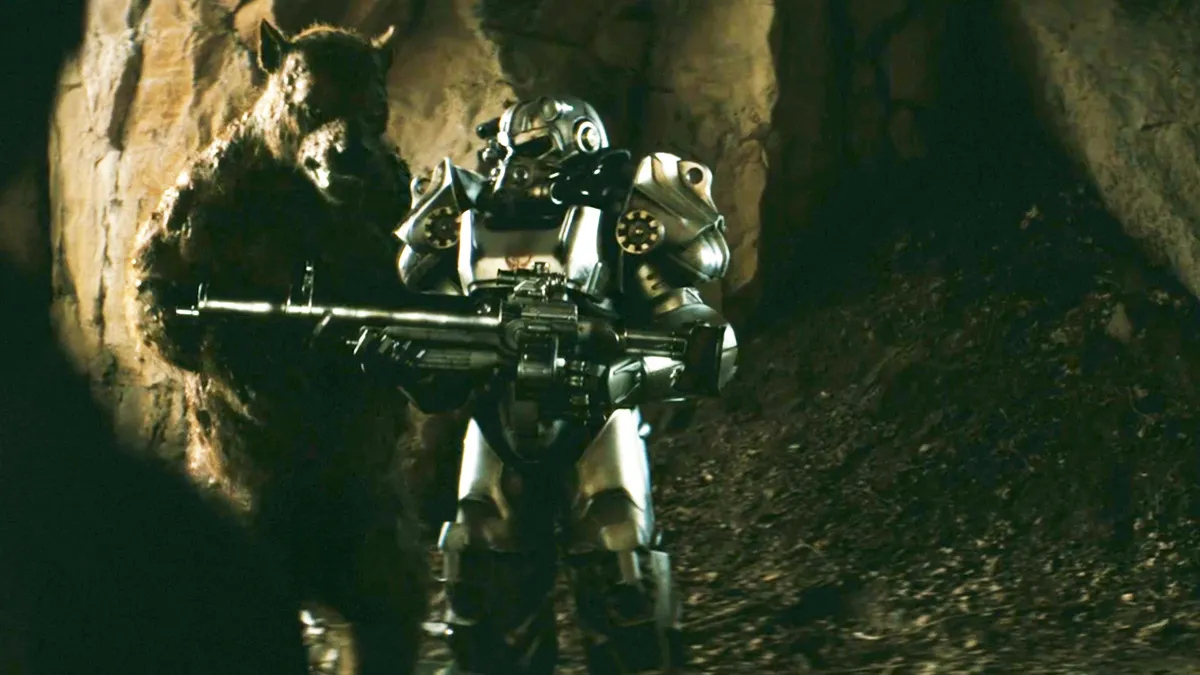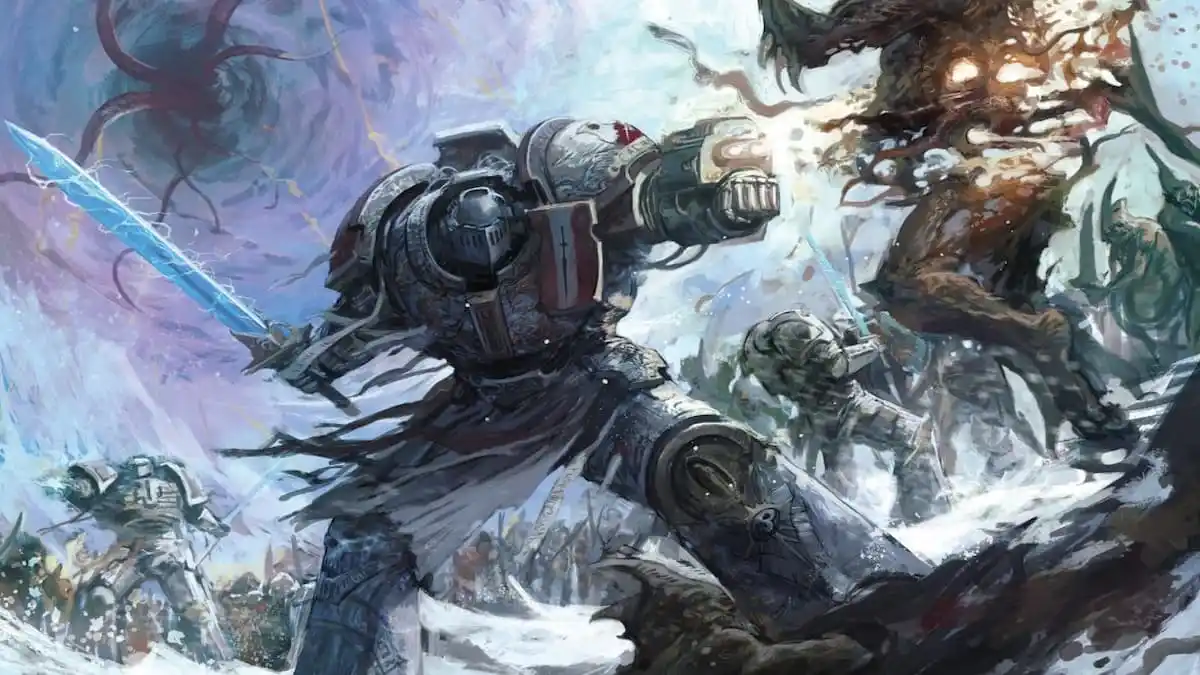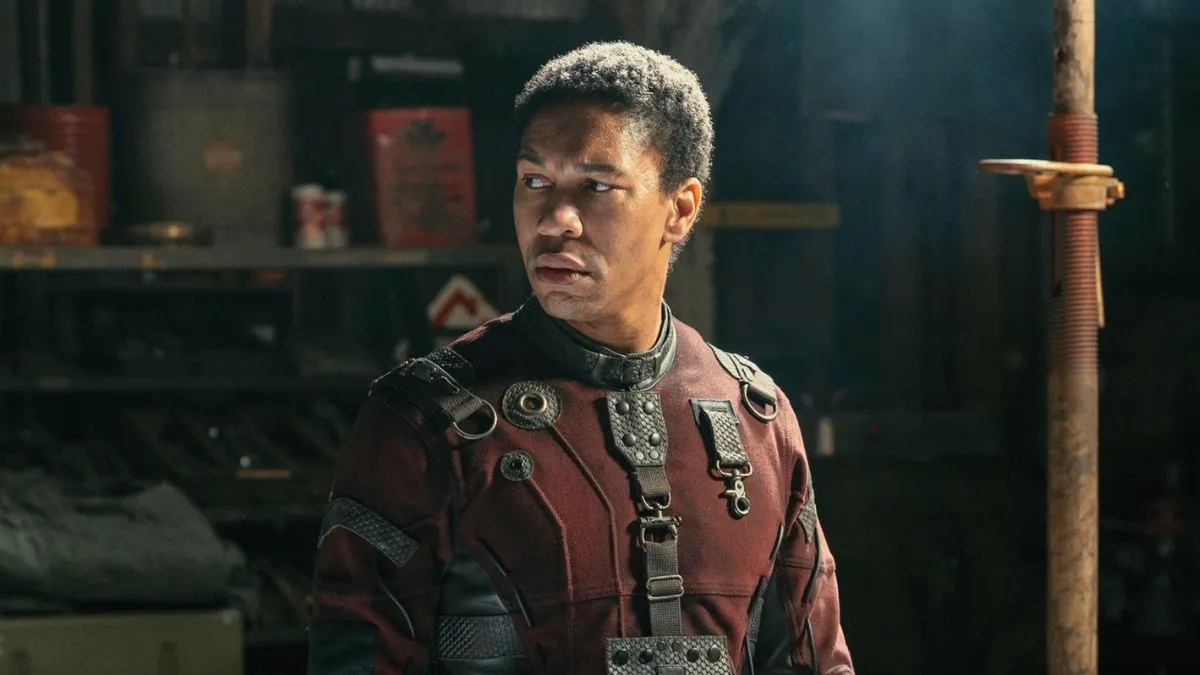
Don’t you love it when a game is good? How could you not love it when you purchase a title and it ends up, more or less, being worth the price of admission? But don’t you also hate it when a game fails to be anything more than just the sum of its parts, merely settling for a lay-up instead of dunking the ball or, better yet, taking the three-point shot? No one’s totally bummed out by a lay-up, but who wouldn’t want that extra spice of a highlight dunk? Such is my relationship with Transistor.
Supergiant Games’ sophomore title (their debut being 2011’s excellent Bastion) follows Red, an ex-singer in the city of Cloudbank who is being hunted down by a mysterious group known as the Camerata. Said group uses the Process, an army of white robots that come in all shapes and sizes, to do its dirty work – something that is worth noting.
So, why hunt down Red? Well, she’s in the possession of a sword called the Transistor. Why is the sword so important? Well, to give away any more of the plot would be a massive disservice to the title, as this experience is all about slowly peeling back layers of information. When the game first starts, I wish you the best in trying to understand what exactly is going on, as you’re almost immediately greeted by a mysterious male voice that turns out to be your companion throughout the experience. The exposition is told mainly through said male vocal companion and Terminals (there are barely any cutscenes) that eventually reveal most of the game’s mysterious bullet points, such as Cloudbank’s status, the members of the Camerata, and what the hell the Transistor is, to name a few.
Now, Transistor’s plot won’t win it any awards, but that’s not to say that it’s a boring one — far from it, actually. The plot is engaging at times, but fails to get you invested into the storyline as much as the developer wants you to be. You can tell that they so badly want you to be riding along, super-engrossed with their mystery-shrouded tale, but it’s just missing that inexplicable special sauce that makes you want to explore more of its restaurant’s menu, if you will.
It’s as if they threw too much cloudiness and not enough sunlight into the story, making it hard for the player to find motivation to finish the game. It also doesn’t help that the ending is a head-scratcher and not necessarily the good kind a la Bioshock Infinite. Also, besides the game’s plot being a little up its own ass at times, the development of its characters was also lacking, as Red is far from a memorable hero. In fact, the best character in the game is the Transistor sword, so take from that what you will. Transistor’s story does indeed do enough to string you along, but it just doesn’t hit the mark when it comes to leaving a lasting impression after the credits roll.

One of Transistor‘s strengths is its combat, which has RPG elements infused into it. While you can play through the game as a third-person action title, issuing out attacks in real-time, expect to get your ass whooped handily later on if you don’t utilize the available planning mechanic. Basically, the planning phase (triggered and executed by pressing R2) freezes all of the action and shows an action point-esque bar on the top of the screen, which highlights how much movement and Functions (different attacks assigned to the four face buttons) cost. It’s easy to learn and makes each encounter all kinds of fun, but it’s only half of the combat system found within Transistor.
As mentioned before, Functions are the game’s name for its different attacks. At access points scattered throughout Cloudbank, you can equip these Functions as a primary (active slot) attack, a modifying (upgrade slot) perk, or a passive (passive slot) perk. Each Function has a different cost — think Call of Duty: Black Ops II‘s online customization — so you have to be smart about how you equip Red.
For example, one Function allows you to dash insanely fast as a primary, well, function. So this means mapping it to square, circle, triangle, or “X” (if you’re playing on PS4) and each time you press the mapped button, Red will do a dash. You can equip it to another active Function (an active function can have two possible upgrade slots) and that’ll allow that Function to be used while the planning phase is still cooling down since its modifying attribute. If it’s equipped as a passive slot, it allows the planning phase to cool down faster. You can also have limiters that hinder you, such as spawning more process, in exchange for, say, a 6% bonus in experience points.
Levelling up happens fairly frequently, and yes, it is an addicting affair. Doing so entitles you to another Function of your choosing, an option to unlock active and passive slots, and different limiters with varied experience point bonuses. Fighting the game’s normal encounters will make you strong enough, but I definitely recommend the fun and never-too-challenging test chambers found in backdoors throughout Cloudbank. There are speed, planning, agency, performance, and stability tests, which are great in allowing the game to show what different Functions can do, while providing more experience points to help the player level up faster. I know that the Functions system seems like a mouthful, but it’s undoubtedly a fun aspect to master, and possesses a decent learning curve. The only nitpick I have is that I never had a game over screen pop up until near the end of this 5-8 hour experience, thanks to a difficulty spike. It never made me rage quit, but I couldn’t help but think that the game just randomly threw in a cheap enemy to artificially make things more difficult.

Perhaps Transistor‘s greatest strength comes through its audiovisual package. Now, I’m not the type of guy to just totally fall in love with the outside without considering the inside, but damn, this is a fine-looking title! The art, despite being muted throughout most the game, is just gorgeous. Everything is so sleek and clean. It’s as if they drew up the concept art, snapped their fingers and voila — you have moving concept art. The animation isn’t exactly complex here, but it has that Samurai Jack charm to it, and when you see enemies scattering around, you’ll see what I mean. Thankfully, the audio is executed just as well as the visuals. The haunting humming of Red and the subtle soundtrack are absolutely beautiful.
As I hinted in the opening, I wanted to love Transistor more than I did. I wanted to wine and dine it, share laughs on a road trip together, and meet its parents. However, due to the plot ultimately not living up to its potential, the inclusion of severely undercooked characters, and a strong feeling that it’s missing some “je ne sais quois,” I merely “liked” it. I’ll take it on movie dates and fun fast food lunches, but I wouldn’t see me calling it back after our week of fun.
This review is based on the Playstation 4 version of the game, which we were provided with.






